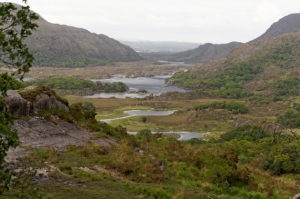Vote tarnishes credibility of European Green Deal
FRIENDS OF THE EARTH EUROPE, FOOD & WATER EUROPE
Brussels – MEPs on the European Parliament’s Energy Committee (ITRE) have failed to reject the EU’s list of priority energy projects in a vote today, despite it containing dozens of new harmful fossil fuel projects incompatible with the Paris climate agreement.
The Projects of Common Interest (PCI) list identifies the highest priority energy infrastructure projects to be built in Europe and which become eligible for EU funding under the Connecting Europe Facility (CEF). But this fourth iteration of the PCI list has come under harsh criticism from both MEPs and civil society for the 55+ fossil gas projects on the list [1] – including mega pipelines and terminals to import fracked gas. Constructing these projects would put the climate neutrality goals of the European Green Deal in jeopardy. The list also includes a number of other energy infrastructure projects.
Frida Kieninger from Food & Water Europe said:
“All this new infrastructure for more fossil gas comes on top of Europe’s well-diversified gas network. Fossil gas is today’s biggest contributor to CO2 emission growth and is incompatible with the fossil free future promised in the European Green Deal. More unnecessary gas infrastructure will become a stranded asset, and consumers and the climate will pay the price.”
In exchanges of views with the Commission on the PCI list in October 2019, MEPs criticised the EU Commission for lack of sustainability and climate assessment for the PCI projects, the financial risks associated with creating infrastructure that could become potential ‘stranded assets’, and the incompatibility of the list current EU energy legislation with the Paris Agreement. [2]
Despite these concerns, climate-conscious MEPs in the Renew and S&D groups were unable to convince their colleagues to reject the PCI list. The motion, put forward by Green MEP Marie Toussaint and co-signed by Green, Renew and GUE MEPs, called for a rejection of the entire PCI list, and demanded a rapid revision of the TEN-E regulation which underlies the PCI process [3]. But the motion was today defeated by 54 votes to 17. [4]
84 civil society groups have signed an open letter calling on MEPs to reject the fossil gas PCI list [5]. Many of the signatory organisations are fighting specific gas projects that are being imposed on their local communities, such as the Krk LNG terminal in Croatia, the Shannon LNG terminal in Ireland and the EastMed pipeline, which is facing opposition in Cyprus, Greece, Italy and beyond the EU in Israel.
It is likely that a motion to reject the list will be put to the whole Parliament for plenary votes in February.
Colin Roche, climate justice coordinator for Friends of the Earth Europe said:
“There can be no truly Green Deal with more fossil gas. It’s now up to all MEPs to reject this vast list of mega-pipelines and other new fossil fuel projects – they are not compatible with the climate emergency and tarnish the credibility of any European Green Deal.”
***
For more information, contact:
Colin Roche, climate justice coordinator, Friends of the Earth Europe, [email protected], (+32) (0)489 598984
Frida Kieninger, Food & Water Europe, [email protected], (+32) (0) 2893 1045, (+32) (0)487 249 905
Robbie Blake, Communications team, Friends of the Earth Europe, [email protected], (+32) (0)2 893 1010
***
[1] The 4th PCI list contains 32 clusters of gas projects. Many of these clusters contain several different projects that were counted as separate pieces of infrastructure in previous PCI lists. When these clusters are separated out, there are 55 gas projects on the 4th PCI list.
[2] The ITRE Committee engaged in two exchanges of views on the PCI list in 2019. The first took place on 17 October with Claus Dieter Borchardt of DG ENER, the second on 5th December with Commissioner Simson.
[3] The PCI list process is laid out in the TEN-E Regulation https://eur-lex.europa.eu/legal-content/en/TXT/?uri=celex%3A32013R0347. This regulation dates from 2013 and does not consider climate commitments such as the Paris Agreement, the EU’s 2030 decarbonisation targets and the European Green Deal. The TEN-E Regulation does not require any climate impact assessment of PCI projects. The European Commission has pledged to review the TEN-E legislation by the end of 2020. However, any potential revision of the legislation will take place after the selection process for the next fifth PCI list has begun.
[4] The PCI list is a delegated act. The list is set by the European Commission, after which both the Parliament and the Council have the option to reject the list in its entirety. MEPs can only reject the list in its entirety; they may not reject only the fossil fuel projects, or object to individual projects on the list.
[5] Over 80 Civil Society Organisations spoke out in support of a rejection of the gas projects in the list:https://www.foodandwatereurope.org/wp-content/uploads/2019/10/CSO-letter-PCI.pdf



